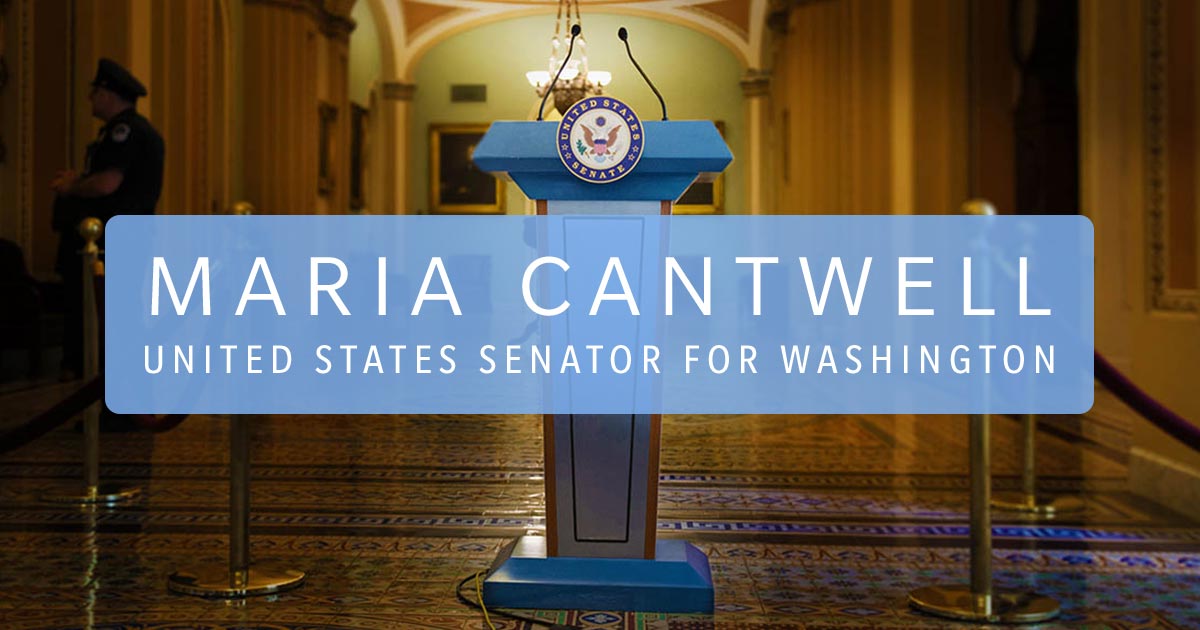Source: United States Senator for Washington Maria Cantwell
Cantwell’s 11-Year Fight to Protect Bristol Bay Reaches Major Milestone
EPA to propose blocking the proposed Pebble Mine at Bristol Bay, Alaska; the mine would irreparably harm 40-60 million salmon and Washington state’s $30 billion maritime industry.
WASHINGTON, D.C.— A long-sought priority of U.S. Senator Maria Cantwell (D-WA) came closer to reality today when the U.S. Environmental Protection Agency (EPA) announced that it will pursue using its Clean Water Act 404(c) authority to permanently block the Pebble Mine as proposed at Bristol Bay, Alaska.
In September 2011, Senator Cantwell became the first U.S. Senator to call on the EPA to consider the use of the Clean Water Act to protect Bristol Bay. The Senator has long cited the potential damage to Washington state’s $30 billion maritime industry, the potential loss of fishing jobs, as well as the devastating effect of salmon run declines on commercial, subsistence, charter and recreational fisheries.
“Our region’s fishing and outdoor economies depend on healthy wild salmon runs,” said Senator Cantwell. “The science is clear: the Pebble Mine would poison the fragile Bristol Bay watershed, destroying millions of salmon and the thousands of jobs that rely on them. I commend the EPA for advancing permanent Clean Water Act protections for Bristol Bay, and I urge them to move swiftly to finalize these protections and ensure Bristol Bay salmon are protected forever.”
The Pebble Mine threatens to irreparably harm the Bristol Bay watershed, the 40-60 million salmon that return to it every year, and the fishermen and industries that rely on these salmon. A three-year study by the Environmental Protection Agency released in 2014 found that the mine as proposed would, even in the course of normal, safe mine operations, destroy 24 to 94 miles of pristine waterways and salmon habitat and contaminate an additional 48-62 miles of streams with toxic mine waste. The report also noted that the Bristol Bay watershed supports the largest sockeye salmon run in the world.
Under Section 404(c) of the Clean Water Act, the EPA may restrict, prohibit, deny, or withdraw the use of an area as a disposal site for dredged or fill material if the discharge will have unacceptable adverse effects on municipal water supplies, shellfish beds and fishery areas, wildlife, or recreational areas.
The EPA rarely uses this authority. They have issued only 13 such determinations since the authority was granted in 1972.
Senator Cantwell has long fought to protect the Bristol Bay watershed and its important environmental and economic place in the Pacific Northwest.
In the aforementioned September 2011 letter, to former EPA Administrator Lisa Jackson, Cantwell became the first U.S. Senator to call on the EPA to use its Clean Water Act 404(c) authority to block any large development project in Bristol Bay if science determined that the project would “have unacceptable adverse impacts on water quality and the fish stocks that depend on it.”
In January of 2014, she called on the Obama Administration to protect Bristol Bay from mining after a report showed the proposed mine would threaten salmon runs and damage the commercial fishing industry.
In October of 2017, Cantwell and other members of the Washington state congressional delegation urged President Trump to listen to Washington fishermen and businesses before removing protections from Bristol Bay.
In July 2019, Cantwell slammed the Trump administration’s decision to withdraw protections for Bristol Bay.
And in September 2020, Cantwell called for a Justice Department investigation when leaked audio taped indicated possible discrepancies between Pebble Mine company executives’ private statements and what they had attested to in legally-binding permitting documents.
A fact sheet about the EPA’s 404(c) authority can be found HERE. The EPA’s 2014 Bristol Bay assessment can be found HERE.
###
